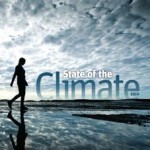 Washington, D.C. – Even in the face of uncertainty about climate and energy policies, forward-thinking companies are developing innovative technologies and solutions that reduce greenhouse gas emissions and provide growth opportunities.
Washington, D.C. – Even in the face of uncertainty about climate and energy policies, forward-thinking companies are developing innovative technologies and solutions that reduce greenhouse gas emissions and provide growth opportunities.
A new report, “The Business of Innovating: Bringing Low-Carbon Solutions to Market”, released on October 18 by the Pew Center on Global Climate Change finds that leading companies are strategically pursuing low-carbon innovations to hedge risks, capture new business, and stay competitive with emerging markets and technologies.
“Opportunities for low-carbon innovations exist throughout the economy, anywhere that energy is used, and companies able to meet the challenges of a low-carbon market with effective solutions will prosper,” said Eileen Claussen, Pew Center on Global Climate Change President. “In a world where knowledge is power, the findings in this study will help companies make informed decisions that benefit their bottom line while improving the environment and economy.”
Written by Andrew Hargadon, Professor of Technology Management at the Graduate School of Management, University of California, Davis, the report provides a set of practical lessons for companies pursuing low-carbon innovations. Companies at the forefront of successfully commercializing low-carbon innovations share several key attributes, including:
- A commitment to low-carbon innovation as essential to a company’s long-term business strategy. Commitment starts at the top and requires strong internal leaders to articulate the value of low-carbon innovations to the company’s future growth.
- Involvement of public policy expertise at the highest level of corporate strategy. Companies formally incorporate policy insights into strategic decisions. They also proactively engage with policymakers to shape policies and standards that are supportive of low-carbon innovation.
- A focus on maximizing customer value along with carbon reduction. In order for low-carbon innovations to be successful, they must provide additional value for customers. Companies often must find innovative ways to reduce the risks associated with adopting new technologies.
The report is organized in four main sections that examine the motives and opportunities for pursuing low-carbon innovation; the unique characteristics distinguishing low-carbon innovation from other types of business innovation; seven keys to success in pursuing low-carbon innovation; and case studies of eight low-carbon solutions by four leading companies: Alstom SA, Daimler AG, HP and Johnson Controls, Inc.
“Mitigating the impacts of climate change while meeting the needs of a booming world population might be tough, but it isn’t impossible – it’s a matter of finding the right solutions and setting them in motion. As the largest IT company in the world, HP can play a unique part in making that happen,” said Engelina Jaspers, Vice President of Environmental Sustainability at HP. “This project with the Pew Center on Global Climate Change highlights technologies and innovations that can drive sustainability from niche to mainstream.”
The report is the culmination of a larger research initiative designed to understand the challenges and opportunities that companies face when bringing low-carbon technologies, products, and services to market. The report findings are based on a survey of the Center’s Business Environmental Leadership Council (BELC) and other leading companies, a series of workshops on different aspects of low-carbon innovation, in-depth case studies of efforts at four companies, and broader research on innovation. The project was funded by a generous grant from HP.
About the Pew Center on Global Climate Change
The Pew Center on Global Climate Change was established in May 1998 as a non-profit, non-partisan, and independent organization dedicated to providing credible information, straight answers, and innovative solutions in the effort to address global climate change. The Pew Center is led by Eileen Claussen, the former U.S. Assistant Secretary of State for Oceans and International Environmental and Scientific Affairs. For more information, visit www.pewclimate.org.
Source: Pew Center on Global Climate Change.













